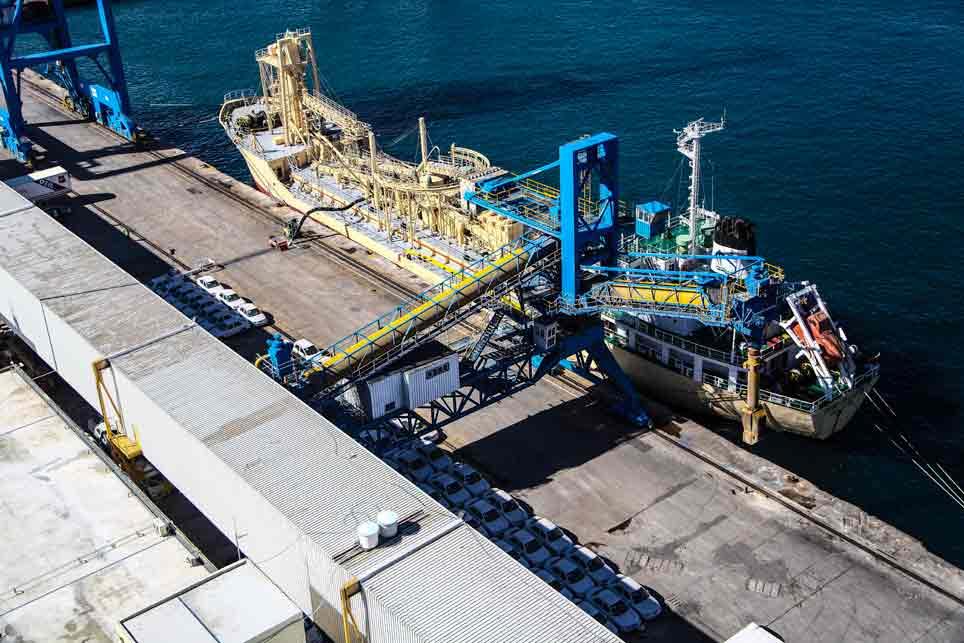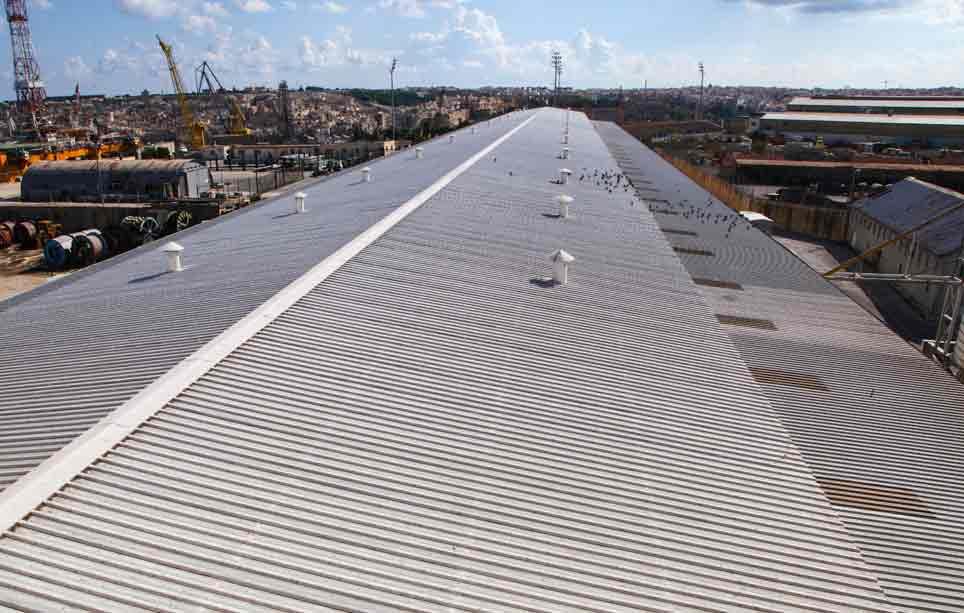Kordin Grain Terminal CEO Alex Agius said that one must assume that contamination of the grain is already present considering that there is no way of detecting traces of heavy metals.
The House Committee for the Environment and Development planning met to discuss the issue of the Kordin Grain Terminal (KGT) and the cement silo built just five metres away, and the potential health risk for the Maltese public involved.
The terminal is authorised to handle the free-flowing grains, offering discharge, storage and loading of said grains, by means of a trading licence and a Food Safety Commission Certificate. It is the only structure in Malta that can do so and the majority of grain in Malta passes through this point.
The grains stored are for both human and animal consumption, including animals used for the production of food for human consumption.
The Committee heard that the KGT is proactive in its maintenance and in the last 5 years, over €4 million was invested in the upgrading of equipment and in health and management systems.
Foreign experts
Buhler, an accredited company in similar grain silo installations, who manufactured the grain terminal in Malta, submitted a sworn affidavit by two of their technical experts on November 2014, KGT CEO Alex Agius revealed during his presentation.

The affidavit read; "the facility of Kordin Grain Terminal is very well kept and is extremely hygienic and is on equal technical level, if not higher, to other similar European grain terminals that they have visited. These include ones in France, Spain, Italy and Switzerland". These experts, the Committee heard, also confirmed that the Kordin Grain Terminal in its present state and mode of operation, meets the European standard required and is in line with relevant and European legislation.
A quote shown from the affidavit by one of the Buhler experts used during the presentation by Mr Agius, read that the expert was astonished to find a non-food plant, specifically a cement silo, so close to the grain terminal. "With a non-food plant situated so close to the Kordin Grain Terminal's plant, I must say that contamination will be unavoidable," the quote read. Mr Aius said that the person writing this report has worked with Buhler for over 25 years and that this was in no way his first time writing such a report on a grain terminal. He has never witnessed a non-food plant placed this close to a food plant in all his years, a cement one at that", the expert's statement read.
Quoting the Buhler report, the CEO said that EU standards do not discriminate between open and closed conveyor belt systems. Regarding the option to change to a closed conveyor belt, the report read that; "this would not eliminate the high risk of contamination due to the fact that the loading and unloading of grain still always carried out with open vessel holds. He said that a closed conveyor-belt is normally only used to protect from weather systems".
The Court refused to issue a warrant for prohibitory injunction however the court did say that the creation of a cement silo so close to the grain terminal should have been treated prior to the construction. The court added that a letter was sent by KGT to the Health Department expressing concern "however there is no indication that the Department took steps regarding this issue".
Another issue was revealed. MEPA, in a draft document, included the following clause; " All operation of the installation shall be coordinated with operations of the adjacent Kordin Grain Terminal (KGT) to ensure that loading of the silo with cement does not coincide with when the grain is begin loaded into the KGT silos". This was done to minimise risk, the CEO said, "however this was removed from the final document and I don't know why".
Dr Godfrey Grech, hygiene and food safety consultant for KGT, said that traces of heavy metals accumulates in the body, and problems could arise later if contamination is found.

Cement Silo representative
Dr Pawlu Lia, representing UC Ltd, operators of the cement silo, said that other cement silos in the area are open air, and as such, being a stones-throw away from the grain terminal, are already potential contaminants. He also mentioned that the terminal is close to the power station chimney and that cruise liners, ships and other contaminants already exist in the area.
Dr Lia emphasised that when moving cement, the entire process is enclosed and that no contaminants are released. He also said that the silo has an environmental permit unlike the other cement silos, which means that rigorous checks are made and this license is renewed every year.
UC Ltd argued that the dock itself is small and as such a grain ship and cement ship could never unload or load at the same time. They argued that KGT should modernise its equipment and techniques rather than try to remove the companies around them.
Dr Lia said that the cement silo conforms with all EU regulations. He added that until this silo was built, there was a monopoly on cement in the country and the issue here is that this silo is offering cheaper prices and better conditions for its product.
Expert in environmental health Dr Christine Belluci spoke on behalf of the Health Directorate said that in October 2013, an environmental impact assessment was made and a risk assessment was then sent to the directorate.
"At no point can you say there is no risk, but the risk is weighed".
Currently, the directorate is sample testing flour around Malta to see if it is within the respectable levels of possible contamination exposure.
Speaking briefly, MEPA CEO Johann Buttigieg said that MEPA will be taking legal steps to ensure that KGT get an environment permit. He also said that the other cement silos in the area are in talks with MEPA to modernise in order to reduce contamination.
Towards the end of the meeting a small argument over procedure broke out between PL MP Carmelo Abela and Committee Chair Marlene Farrugia regarding the scope of the committee, where Dr Abela said that the committee was becoming too much like a court of law set to decide on the two companies. In response Marlese Farrugia said that the subject falls within the remit of the committee to see what can be done to move forward and see if contamination is possible. PL MP Abela agreed in this regard.